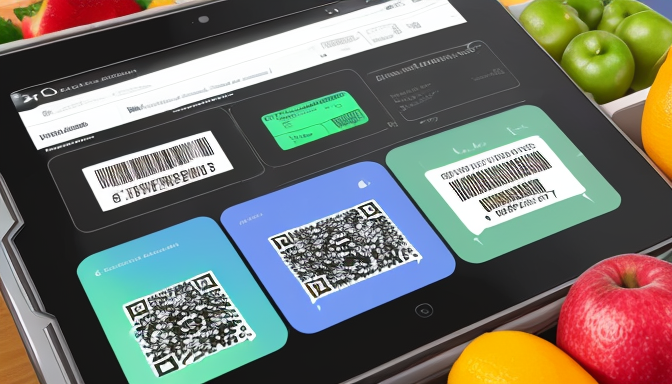Blockchain technology is not just a buzzword; it’s a game-changer for global economies. Imagine a world where transactions are instantaneous, transparent, and secure—this is the promise of blockchain. As we dive into this fascinating realm, we uncover how blockchain is reshaping industries, enabling cryptocurrency transactions, and even paving the way for non-fungible tokens (NFTs). It’s like having a digital ledger that everyone can trust, eliminating the need for middlemen and reducing costs.
One of the most compelling aspects of blockchain is its ability to enhance transparency. In a world where trust is often hard to come by, blockchain offers a solution. Each transaction is recorded on a public ledger, visible to all, creating an environment of accountability. This is particularly vital in sectors like finance and supply chain management, where the provenance of goods and the integrity of transactions are paramount. Imagine being able to trace a product’s journey from its origin to your doorstep—this is the level of transparency blockchain can provide.
Moreover, as we explore the decentralized web ecosystem, we see that blockchain is fostering new opportunities for individuals and businesses alike. With the rise of decentralized finance (DeFi), people can access financial services without the need for traditional banks. This democratization of finance is empowering millions globally, allowing them to participate in the economy like never before. So, could blockchain be the key to a more equitable economic future? The answer seems to lean towards a resounding yes!
Revolutionizing Financial Transactions
Blockchain technology is not just a buzzword; it’s a game-changer in the world of financial transactions. Imagine sending money across the globe in mere seconds, without the hefty fees and delays often associated with traditional banking. That’s the power of blockchain! By utilizing a decentralized network, transactions become faster, more secure, and incredibly cost-effective. This means that individuals and businesses alike can transfer value without needing to rely on banks or intermediaries, which can often slow things down and add unnecessary costs.
But wait, there’s more! With the rise of cryptocurrencies like Bitcoin and Ethereum, the financial landscape is evolving rapidly. These digital currencies operate on blockchain technology, allowing for peer-to-peer transactions that are not only swift but also transparent. Each transaction is recorded on a public ledger, ensuring that everyone can verify the authenticity of the exchange. This level of transparency is crucial in building trust, especially in a world where fraud and scams are rampant.
Furthermore, blockchain opens the door to innovative financial products, including Non-Fungible Tokens (NFTs) and decentralized finance (DeFi) platforms. These advancements allow users to engage in trading unique digital assets or earn interest on their crypto holdings, all while maintaining control over their funds. The decentralized web ecosystem is paving the way for a future where financial freedom is accessible to everyone, regardless of their geographical location.
In summary, blockchain is not just revolutionizing how we conduct financial transactions; it’s creating a new paradigm of financial inclusion. The possibilities are endless, and as we continue to embrace this technology, we can expect a more equitable financial landscape for all.

Enhancing Supply Chain Transparency
In today’s fast-paced world, transparency in supply chains is more crucial than ever. With the integration of blockchain technology, businesses can now track their products from the moment they are created until they reach the consumer’s hands. Imagine being able to verify the journey of your favorite coffee beans from a farm in Colombia to your local café—this is the power of blockchain! By utilizing a decentralized ledger, every transaction is recorded and immutable, which means that once data is entered, it cannot be changed or deleted. This level of accountability fosters trust among stakeholders, from producers to consumers.
Furthermore, the implementation of blockchain in supply chains enhances traceability. Companies can quickly identify where a product originated, how it was handled, and any potential issues that arose during its journey. For instance, if a batch of food products is found to be contaminated, businesses can swiftly pinpoint the source and minimize health risks. This capability not only protects consumers but also safeguards a brand’s reputation.
To illustrate the impact of blockchain on supply chain transparency, consider the following table that highlights key benefits:
| Benefit | Description |
|---|---|
| Increased Trust | Immutable records enhance reliability among stakeholders. |
| Faster Resolution | Quick identification of issues leads to faster problem-solving. |
| Cost Efficiency | Reduces the need for intermediaries, lowering overall costs. |
In summary, blockchain is not just a buzzword; it’s a revolutionary technology that is reshaping how we view supply chains. By enhancing transparency and traceability, it opens up a world of possibilities for businesses and consumers alike, paving the way for a more trustworthy and efficient global economy.
Frequently Asked Questions
- What is blockchain technology?
Blockchain technology is a decentralized digital ledger that records transactions across many computers securely. It ensures that the recorded transactions cannot be altered retroactively, enhancing security and transparency.
- How does blockchain impact financial transactions?
Blockchain revolutionizes financial transactions by allowing faster, cheaper, and more secure cross-border payments. It reduces intermediaries, which means lower fees and quicker processing times, making it an attractive alternative to traditional banking.
- Can blockchain improve supply chain transparency?
Absolutely! By integrating blockchain into supply chains, businesses can track products from their origin to the final consumer. This traceability fosters trust and accountability, ensuring that consumers know exactly where their products come from.
- Is blockchain technology only for cryptocurrencies?
No way! While cryptocurrencies like Bitcoin popularized blockchain, its applications extend far beyond. Industries like healthcare, logistics, and even voting systems are exploring blockchain for its potential to enhance security and efficiency.
- What are the challenges of implementing blockchain?
Some challenges include scalability issues, regulatory concerns, and the need for a cultural shift in how businesses operate. However, as technology evolves, solutions to these challenges are being developed.